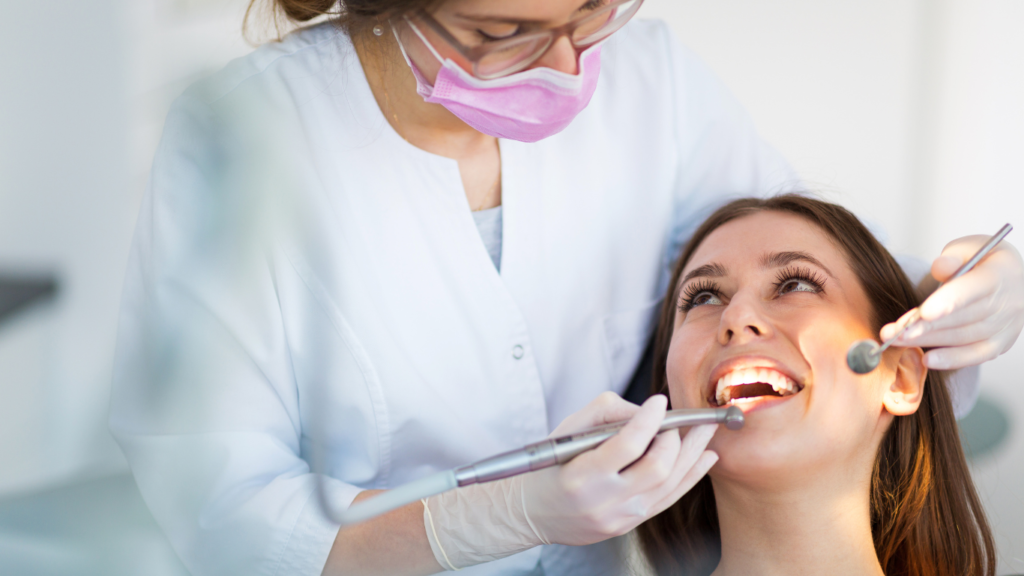We’ve all experienced unexpected health issues at some point in our lives, and dental emergencies are no exception.
From excruciating toothaches to knocked-out teeth, these situations can be distressing and require immediate attention. Knowing how to respond promptly and effectively can make a significant difference in preserving your dental health.
In this article, we will discuss what to do when dental issues strike unexpectedly, providing you with valuable guidance for emergency dental care.
Emergency Dentistry – Common Dental Emergencies
Broken Fillings
When a dental filling pops out or breaks, it is critical to get to a dentist as soon as possible. Tooth decay may develop underneath the filling and if left to continue, may lead to an infection.
Damaged teeth or dental issues that go unresolved can negatively impact a person’s overall oral health.
Chipped or broken teeth
If your teeth are not properly aligned or you have large metal fillings, you may be much more susceptible to chipping or cracking teeth.
Cracks or chips may not have any symptoms or can range to be extremely painful. It depends on how deep and close to the nerve that crack has gotten. Chipped teeth means the enamel has fractured off.
Excessive Bleeding
Excessive bleeding in the mouth may be a result of various conditions. It can stem from gum disease, trauma, infection, etc., and needs to be promptly addressed.
Knocking Out a Tooth
Accidents happen. If you have a tooth that has been knocked out, the first thing you want to do is get the tooth into milk or place the tooth back into the socket.
If the tooth is broken and part of the tooth is still inside the gums, you will need to come in to evaluate what can be done.
Swelling
A facial swelling is considered an emergency, and often spreads to facial spaces and can even become life threatening.
Many swellings stem from decay or broken teeth in the mouth. They can sometimes transition to appear as a pimple on the gums. Although the pain might go away, the infection is likely still present and destroying bone that support teeth.
These issues need to be addressed immediately with antibiotics, and an evaluation needs to take place to understand the root cause.
Tooth Extractions
A dentist’s first priority is to help restore, save, and repair your natural teeth. However, sometimes a tooth extraction is necessary.
Once a tooth has been extracted, there is typically significant bone loss in the area where the tooth was. To combat this, we offer bone grafting to fill the hole where the tooth was. This helps preserve what bone is present, helps slow the bone resorption and helps the healing process by preventing food from entering the socket. This may also help ensure there is adequate bone present for an implant after the site heals.
At Modern Day Dental, we will make sure you’re comfortable before, during, and after your extraction procedure. This includes walking you through every step of the tooth extraction, as well as the use of local anesthetics and sedation options.

Dealing With a Dental Emergency – Steps to Take
Stay Calm and Assess the Situation
When faced with a dental emergency, the first step is to remain calm and assess the situation.
Take a moment to evaluate the severity of the problem and determine if it requires immediate attention. Some common dental emergencies include severe toothache, knocked-out or fractured teeth, oral injuries, loose or lost dental fillings, and infections.
Contact Your Dentist Immediately
Once you have assessed the situation, the next crucial step is to contact your dentist immediately. Dental professionals understand the urgency of these situations and often have provisions in place for emergency care.
Explain your symptoms or the dental problem you’re facing to the receptionist, providing as much detail as possible. They will guide you on the next steps, which may involve scheduling an emergency appointment or seeking immediate medical attention.
Manage Pain and Discomfort
While waiting for professional dental assistance, there are steps you can take to manage pain and discomfort. Over-the-counter pain relievers such as ibuprofen can provide temporary relief for toothaches or oral injuries.
Applying a cold compress to the affected area can help reduce swelling and alleviate pain. Avoid placing aspirin directly on the gums or tooth, as it can cause burns.
Control Bleeding
In case of oral injuries or after tooth extraction, it’s important to control any bleeding. Rinse your mouth gently with warm water and apply pressure using a clean gauze pad or a piece of clean cloth to the bleeding area.
Maintain pressure for around 10-15 minutes or until the bleeding stops. If bleeding persists or is severe, seek immediate medical attention.
Preventive Measures
While dental emergencies can happen unexpectedly, taking preventive measures can minimize the risk.
Practice good oral hygiene by brushing your teeth twice a day, flossing daily, and visiting your dentist regularly for check-ups and cleanings. Avoid using your teeth as tools to open packages or bite on hard objects, as this can lead to dental trauma.
If you participate in contact sports, wear a mouthguard to protect your teeth and gums from injuries.
Be Prepared
Having a dental emergency kit can be beneficial, especially if you’re traveling or in situations where immediate dental care may be challenging to access. Your emergency kit should include your dentist’s contact information, gauze pads, a small container with a lid, pain relievers, and any prescribed medications you may require.

Modern Day Dental | Emergency Dentistry | Jacksonville, FL
Dr. Kulynych worked as a resident at St. Barnabas Hospital in the Bronx, NY. He was on call for all kinds of head and neck emergencies and trauma.
Either way, if you’re dealing with a dental emergency, try to get to your dentist as soon as possible!

